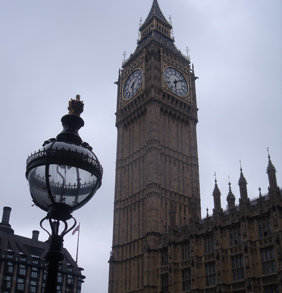The world lacks rules regulating international cyber-attacks and the UK Government should be working with allies to formulate a system to provide accountability for perpetrators, according to a report on ‘the security of 5G‘ by the Commons Defence Select Committee.
The UK’s closest allies within Five Eyes originally embarked on a policy at odds with the UK’s and the Government should have considered the potential damage to key alliances. The Committee conclude that this alone is enough of a concern to begin removing Huawei from the UK’s 5G network.
The Committee support the proposal to form a D10 alliance, consisting of ten of the world’s largest democracies, to provide alternatives to Chinese technology and to combat the technological dominance of authoritarian states. The Government must act swiftly and outline a joint 5G policy as soon as possible.
The Government must continue to denounce and deter threats from adversarial states, such as Russia and China, on the international stage. The Committee call on the Government to clarify why it is not deploying a cyberattack capability to deter aggressors.
Chair of the Defence Committee, the Conservative MP Tobias Ellwood, said: “Protecting the public and preserving our nation’s security are amongst the principle responsibilities of Government. The decision to embed a technology that compromises this would constitute a gross dereliction of these duties.
“The West must urgently unite to advance a counterweight to China’s tech dominance. As every aspect of our lives becomes increasingly reliant on access to data movement we must develop a feasible, practical and cost-effective alternative to the cheap, high-tech solutions which can be preyed upon and which come stooped with conditions which ensnare a state into long-term allegiance to China.
“We must not surrender our national security for the sake of short-term technological development. This is a false and wholly unnecessary trade off. A new D10 alliance, that unites the world’s ten strongest democracies, would provide a viable alternative foundation to the technological might of authoritarian states, whose true motives are, at times, murky. Democracies the world over are waking up to the dangers of new technology from overseas, that could inadvertently provide hostile states access to sensitive information through the backdoor.
The Government’s decision earlier this year was a step in the right direction. However, current regulations are porous, and legislation lacks teeth, continuing to allow telecoms companies to prioritise profit over the public and the nations’ security. Thankfully, Huawei, and the risks that foreign technology pose to our national security, have garnered much-needed and long-overdue attention in recent months. The Government must ensure that legislation is airtight, leaving no room for companies to slip through the cracks. Enacting the Telecoms Security Bill by the end of this year is imperative, as this will bring regulations up to date.”
As background, UK Government announced restrictions in January on high-risk vendors followed by stricter rules announced in July, with Huawei to be removed from the UK’s 5G network by 2027.
Comment
Jake Moore at the cybersecurity company ESET said: “5G has the potential to enable even more highly sophisticated attacks than those we are already seeing, so businesses must be prepared for a possible influx. 5G offers an impressive platform that we haven’t seen before, yet we know it will deliver high volumes of data in quick succession. Should threat actors choose to use this new conveyance, we must remain protected. We have time to get ready and all our resources should be in place for what could be seen as an inevitable increase in multiple, highly impactful attacks.”









